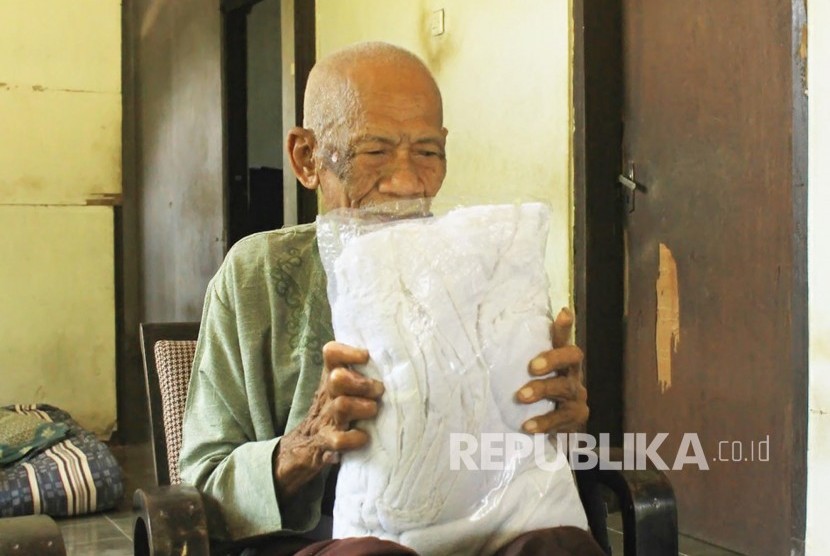REPUBLIKA.CO.ID, JAKARTA - Indonesian pilgrims waiting list is even longer. A total of 4.66 million people are predicted to be in it by 2020, according to the Ministry of Religious Affairs.
In June, the Director of Fund Management of Directorate of Hajj and Umrah, Ramadan Harisma, said that the number of Hajj queues has reached 3.01 million people by December, 2015.
In late 2016, the number increased to 3.34 million people. With 211 thousand people in the annually regular quota, the national queue of pilgrims would reach the average of around 23 years for the next five years. "With 20 percent quota reduction as the last few years due to the renovation of Masjidil Haram, the number of hajj waiting list could be much longer," said Ramadan in the Pondok Gede Hajj Dormitory, Jakarta on Saturday (June 6, 2016).
The phenomenon occurred because of the continuously increasing interest of the Hajj registrant, while the Hajj quota is limited. With more and more numbers of people in the waiting list, the settled hajj funds were also increased.
Amid the lack of the state budget to fund the infrastructure development in Indonesia, the Head of National Development Planning Agency (Bappenas), Bambang Brodjonegoro, stated a controversial idea to use the hajj for financing the infrastructure projects in the country.
According to him, the total pilgrimage funds deposited to the Ministry of Religious Affairs was currently estimated at more than Rp 70 trillion. These funds could be used for funding the infrastructure projects, either directly or indirectly.
"Now, we have made sukuk (Islamic bonds) based-project. The bonds can be funded by using the pilgrimage fund, so its indirect (fund). It could also be taken from the hajj fund (directly). But there must be an agency (Financial Management Board of Hajj). In the future, (the agency) could be participated in the capital funding of infrastructures development," said Bambang in Jakarta on Tuesday (January 10).
Bambang argued that the investment would bring good returns. However, the projects have to be really carefully chosen. "The guarantee of the project (Sukuk-based project) is the project itself. That's why we should choose the right project. We should choose a good one," said Bambang.
This idea met resistance from the Minister of Religious Affairs, Lukman Hakim Saifuddin. He emphasized that the ministry does not invest hajj funds, which became an initial deposit of the prospective pilgrims, to build any infrastructure.
In accordance to the existing regulations, the ministry conducted the hajj funds development through three schemes. By the schemes, the funds were developed to purchase Shariah Securities (SBSN) and government securities (GS), and to be put in the form of time deposits.
No hajj funds were invested to build any infrastructure. "This is in line with the provisions set in the Ministry of Religious Affair’s Regulation (PMA) No. 23 in 2011 on the management of BPIH," said the minister in Jakarta on Tuesday (January 10).
In the Verse 1 of Article 11 of the regulation, the development of BPIH was conducted to generate beneficial values with guarantees on security, benefits, and liquidity. The second verse asserted that BPIH development as referred to in paragraph were conducted by buying sharia securities and government securities, and to be put in the form of time deposits.
The same thing was stated by the Director General of Hajj and Umrah, Abdul Djamil. According to him, the placement of BPIH funds refers to the Article 11 of the PMA 23 in 2011. There are three options, one of which is SBSN.
However, said Djamil, the government might used the hajj funds managed by the Ministry of Finance in the form of Shariah Securities (SBSN). But, it is not in the domain or the responsibility of the Ministry of Religious Affairs. The same case would also been happened in the hajj funds managed by the Islamic banking.
The hajj funds management is highlighted again by a number of members of the House. The Vice Chairman of Commission VIII, Sodik Mudjahid, regretted on the government’s idea to use the hajj funds to finance the infrastructure development.
According to Sodik, it was unethical, because the community has struggled hard to collect money in order to go to the Holy Land. The politician from Great Indonesia Movement Party (Gerindra) said the government should do a consultation with its partners in the Parliament.
Abdul Djamil added that the Ministry of Religious Affairs should comply with the regulation. The ministry should place the funds in accordance with existing regulations.


